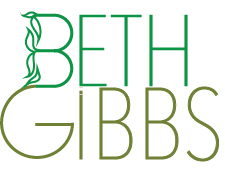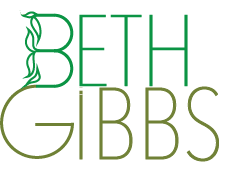ENLIGHTEN UP! a blogSelf-awareness stories: lighting our way to clarity, contentment and resilience in a complicated world.
|
 A paradox presents two conflicting ideas and relates them in a way that forces you to wonder if it's true or not. It defies logic and runs counter to one's expectations. A key component of critical thinking is the ability to accept and work with both sides of a paradox. One good example of a paradoxical statement comes from Pearl Bailey, actress, singer and author, who said, “Some of the biggest failures I ever had were successes.” Here’s another example. There's a hotel described in a famous pop culture song where you can check out anytime but unfortunately, you can never truly leave. I think this means you can physically leave a difficult, confusing or traumatic situation but may not be able to easily leave behind the experience or how it makes you feel when you think about it. This is also true of positive and joyful experiences. If you can see paradoxical ideas as both/and statements instead of black/white or right/wrong statements, you are able to accept that two things can be true at the same time. You are “walking the grays,” looking at things from all sides and all shades while gaining more clarity, contentment, and resilience. Here are three more paradoxes to think about:
Paradoxes also exist in the study of consciousness and self-awareness. It seems the more aware we become, the more we realize how much we don’t and never will know about our very existence in the universe. Given that, we can add another paradox to the above bulleted list:
Sometimes poetry is the best way to express a paradox. Here’s mine. Paradoxically Yours Consciousness is a paradox A puzzle, a riddle, a mystery, So enlighten up as best you can And express the truth you see. For there's no beginning, no past, no end Is the present a perfect w/hole? To experience the answer Let your practice be the goal. But what need of practice if we're already there? If Big Mind is ours and we see? We practice to express who we truly are To behave like the Buddhas we be. Even so, we resist it, with our likes and dislikes With our wants and our hopes, and our fears. And we stumble along over pebbles and rocks As our present/s grow into years. All we do and try not to do Catches us tight in a trap, Surrender is the only way To rise above the Gap. Gratitude is the ticket Self-awareness is the key That will carry us through the waters Of the universal See. So rest, relax and be aware Of Quantum reality That connects one to all and all to one And that’s the way it be. When little mind softens to Big Mind And we finally say, "I don't know" Consciousness will jump for joy And we’ll go with the flow. So how do we surrender, rest, relax and be aware and shift our little mind to Big Mind? If you been reading my bog posts and newsletters you know my go-to answer is self-awareness and by that I mean the ability to see, understand and accept our complex and often paradoxical beliefs, habits and behavior without judgment. Then we can consciously choose to make changes, remain unchanged with full awareness of the consequences or find acceptance and peace of mind if change is not possible. Cultivating self-awareness is a lifelong journey that can be started at any age. Self-awareness, is a state not a trait. We don’t find and keep our self-awareness. It will ebb and flow, shift and change depending on our situation and state of mind. Another question to consider is - why is self-awareness important? It’s important because if we move through our lives on autopilot with no awareness of our body, how we’re breathing, or our habits, routines, beliefs, emotions, impulses, and reactions, we lose power. When we become truly self-aware at the deepest levels, and learn to “walk the grays,” we will gain a better understanding of how and why we react the way we do to what life presents. Then the choices we make are conscious. Our responses are healthier, balanced and more productive. This requires attention and effort. It will take time, but the result will be more clarity, contentment and resilience. If you’d like more information on this topic, you can read my blog post here. Then if you want more detailed information with stories, practices and a bit of humor sprinkled in, you can read my book Enlighten Up! You’ll find more information and a trailer to watch here. And keep a lookout for my next book on the topic titled, Bitchcraft, Owning Your Power in a Complicated World – coming this fall! You can read my blog post on it here.
0 Comments
 In this post I’m going to recommend a few books that focus on yoga postures, breathing, relaxation and meditation and how to vary them for optimal health and different abilities. Why yoga? Here are a few benefits:
 Empowered Aging, Everyday Yoga Practices for Bone health, Strength and Balance by Ellen Saltonstall is a comprehensive guide that offers a fresh perspective on living with courage, vitality and grace. Drawing from the wisdom of yoga, this book provides professional guidance, gentle adaptations, and compassionate support to improve your bone health, strength and balance while enhancing your overall well-being so you can enjoy the fullness of life at any age. Each chapter is filled with simple and easy-to-follow instructions that can be done from the comfort of your own home. The expert advice makes this book an invaluable resource for those seeking to reclaim their vigor. Whether you’re new to yoga or an experienced practitioner, Empowered Aging will inspire you to take control of your health and embrace your golden years with confidence. Ellen Saltonstall is an experienced yoga instructor with forty-five years of study, practice and teaching. She is known for her clarity, depth of knowledge, and enthusiasm for encouraging students of all levels to find freedom and joy through yoga. Ellen teaches regularly with the highly regarded online platform YogaUOnline, as well as in yoga venues both nationally and internationally. In addition to her other books, her writings have appeared in Yoga Journal, Topics in Geriatric Rehabilitation, and The International Association of Yoga Therapist’s Journal of Yoga Therapy.  Yoga for Pain Relief and Live Pain Free Without Drugs or Surgery by Lee Albert will show you how to select, adapt and practice accessible yoga postures, breathing techniques, relaxation and meditation to reduce pain and rebalance your body. Lee’s program, called Integrated Positional Therapy, is focused on relieving pain caused by structural imbalances, and treating pain patterns caused by injury, stress, repetitive strain, postural distortion and chronic muscular conditions. The books address many conditions. Here are a few easily recognized ones:
I was fortunate to book a session with Lee at the Kripalu Center for Yoga and Health to talk about the pain I experienced in my low back and right hip. Within that one-hour session he pointed out my hip and pelvic imbalances and showed me how to modify several of my favorite yoga postures, to work with my structural imbalances. As a result of that session I have changed the way I work with and teach many traditional yoga postures. Understanding and working with the ways in which my body is imbalanced has taught me how to vary my exercise and daily activities and experience little or no pain. Lee Albert, MNT, creator of Integrated Positional Therapy, is a nationally recognized yoga instructor and expert in neuromuscular pain relief. You can find more information about his work at www.LeeAlbert.com  Yoga for Times of Change by Nina Zolotow is full of sound advice for using your yoga practice to move through times of stress, anxiety, grief and life transitions. The guidance in Nina’s book offers a variety of ways to use yoga as a healthy coping mechanism when you are confronted by the inevitable ups and downs that life brings. The suggested practices, including postures, breathing practices, relaxation, mantras and meditation will allow you to rebalance when you’re experiencing challenges and help you build resilience for the future. Nina’s recommendations for practice take into consideration that everyone of us is different in abilities, preferences and personal approaches to yoga. She clearly recognizes that no ‘one size fits all.’ Therefore the book is replete with different ways to vary the techniques to suit the reader’s needs. She includes a wide variety of ways to keep your yoga experiences at home or in the classroom as safe as possible. Nina Zolotow is a certified yoga teacher as well as a longtime yoga writer. She teaches workshops and classes on yoga for emotional well-being, stress, better sleep, cultivating equanimity and healthy aging. You will find many articles, posts and sources of information on The Yoga for Times of Change blog.  And last (but hopefully not least) is, Ogi Bogi, The Elephant Yogi – my book! Science shows that a relaxed state of awareness is optimal for receptivity, learning, and problem solving. In Ogi Bogi, readers, both children and the adults who care for them, will find a collection of original stories that teach children how to attain this state of awareness and use it to deal with issues like self-confidence, social skills, emotions (pleasant, intense or painful), peer pressure and academic success. My colleagues and I have tested the techniques in this book with over 4,000 children and youth in the Wake Up and Relax! yoga classes at Hartford’s Camp Courant and in after school programs. Joseph Le Page, Founder, Integrative Yoga Therapy said this in his endorsement, While most yoga books for children focus on exercise routines in the form of animals or other symbolic shapes, they don’t deal with the most important questions of personality and values development which are at the heart of yoga. While the yoga positions are practices to support this foundational work, Beth’s book gives practical tools for children to learn the real value of yoga. You can find more information about the book here. Happy reading, learning and practicing! |
Archives
July 2024
AuthorBETH GIBBS started her yoga practice in 1968, four months after her son was born and she’s been practicing ever since. She currently teaches all levels therapeutic yoga classes for adults, and specialty classes for seniors in the Hartford, Connecticut area. Beth is a certified yoga therapist through the International Association of Yoga Therapists and is guest faculty at the Kripalu School of Integrative Yoga Therapy. She writes for the blogs, Yoga for Healthy Aging, and Accessible Yoga. Her master’s degree from Lesley University in Cambridge, MA is in Yoga Therapy and Mind/Body Health. Categories |
|
|
Enlighten Up! a Blog
|
Copyright © 2023 Beth Gibbs

 RSS Feed
RSS Feed
